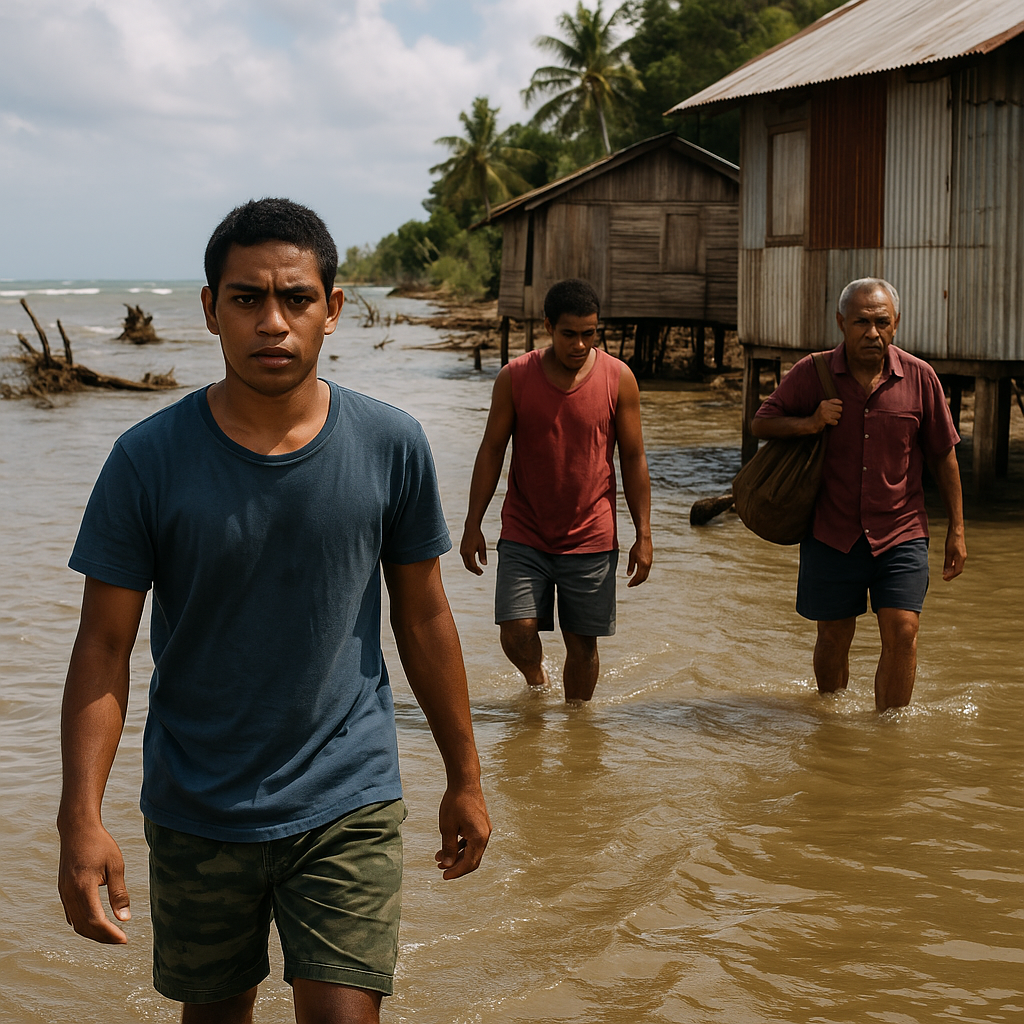Africa Charts Bold Climate Agenda at CCDA-XIII Ahead of COP30 in Brazil
James Kinyangi, Coordinator of the ClimDev-Africa Special Fund at the Bank, stressed that science remains Africa’s “first line of defense.”

- Country:
- Brazil
The 13th Conference on Climate Change and Development in Africa (CCDA-XIII) has concluded with a strong call for an evidence-based, investment-ready, and unified African climate agenda, as the continent prepares its common position for COP30 in Belém, Brazil.
Held from 5–7 September, the conference convened over 250 policymakers, negotiators, scientists, civil society representatives, and youth leaders, underscoring CCDA’s role as the continent’s leading technical platform linking science, policy, and action.
Calls for Urgent Action and Climate Justice
Opening the gathering, Mithika Mwenda, Executive Director of the Pan African Climate Justice Alliance, delivered a forceful message:
“Africa cannot afford to be trapped in endless pledges while our people suffer. We need urgent action, with adaptation and resilience placed at the center of global climate action. Justice means financing Africa’s solutions, not charity handouts.”
Delegates repeatedly stressed that Africa—responsible for less than 4% of global emissions—is bearing a disproportionate share of climate impacts, with nine of the ten most climate-vulnerable countries located on the continent.
Financing Gap and Development Bank Response
Anthony Nyong, Director of Climate Change and Green Growth at the African Development Bank (AfDB), highlighted the financing gap that continues to undermine Africa’s response:
“Despite contributing less than 4% of global emissions, our continent receives only 3% of international climate finance. This gap is unacceptable.”
Nyong emphasized AfDB’s commitment to scaling investments, institutional reforms, and climate-smart financing, including the mobilization of $4 billion through the Climate Action Window by 2025 to support vulnerable states.
He added:
“Climate resilience must be built where it is needed most—on the frontlines of vulnerability. That means connecting adaptation to peace, empowering every African country to lead its own climate transition, and equipping them with the intelligence to act decisively.”
Science and Data at the Forefront
James Kinyangi, Coordinator of the ClimDev-Africa Special Fund at the Bank, stressed that science remains Africa’s “first line of defense.”
“Without closing knowledge gaps, our people remain exposed to risks we cannot anticipate or manage. Investing in climate data and early warning is not optional—it is essential for saving lives and building resilience.”
Technical Recommendations for a Unified Agenda
The conference concluded with technical recommendations to guide the Addis Ababa Declaration and Africa’s negotiating stance at COP30:
-
Science, Data & Climate Intelligence: Invest in integrated monitoring systems, early warning, and indigenous knowledge to close Africa’s data gaps.
-
Adaptation, Resilience & Loss and Damage: Bridge Africa’s $160 billion annual adaptation gap, operationalize a new Disaster Tracking System, and ensure fair access to the Loss and Damage Fund.
-
Transforming Climate Finance: Mobilize $2.5–$3 trillion annually by 2030, scale tools like green bonds and blended finance, and ensure 10% of flows build Africa’s green workforce.
-
Just Transition & Energy Access: Guarantee universal energy access, build value chains for critical minerals, and position Africa as a hub for green hydrogen and renewable-powered industrialization.
-
Ecosystems & Nature-Based Solutions: Scale stewardship of forests, wetlands, and peatlands; embed circular economy principles in climate commitments; and secure recognition of Africa’s ecosystems as global public goods.
-
Governance & Institutional Coherence: Strengthen the African Union’s role in climate governance, embed climate in national planning, and bolster negotiating capacity.
-
Global Community Responsibilities: Ensure delivery of the $300 billion annual climate finance pledge by 2035, adopt a measurable Global Goal on Adaptation, and establish fair carbon taxation regimes.
Africa’s Leadership on the Global Stage
Closing the conference, Claver Gatete, United Nations Under-Secretary-General and Executive Secretary of the UN Economic Commission for Africa (ECA), emphasized Africa’s proactive role:
“This conference was not an end in itself. It is a bridge that links evidence with ambition, technical depth with political momentum, and Africa’s aspirations with actions. Africa is not waiting to be acted upon. We are shaping our destiny, leveraging our resources, and bringing solutions to the world.”
Looking Ahead to COP30
The outcomes of CCDA-XIII will feed directly into the Second Africa Climate Summit (ACS2) and form the foundation of Africa’s common position at COP30. With growing urgency, leaders across the continent aim to ensure that Africa’s voice—anchored in climate justice, resilience, and sustainable development—shapes global negotiations in Brazil.










